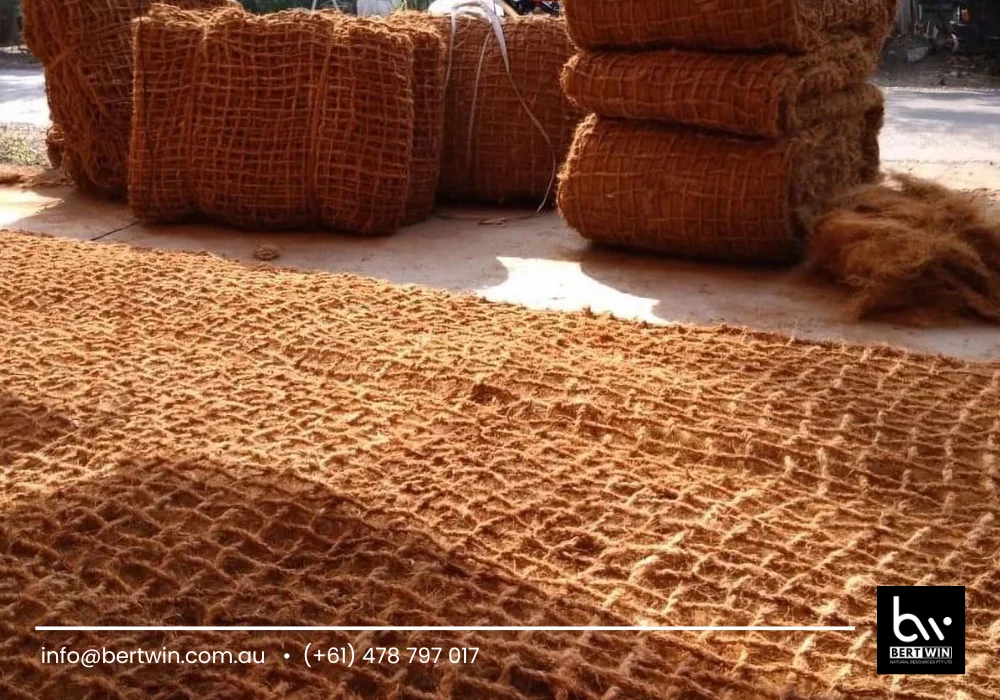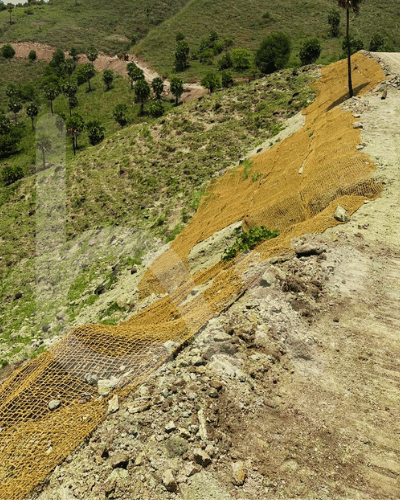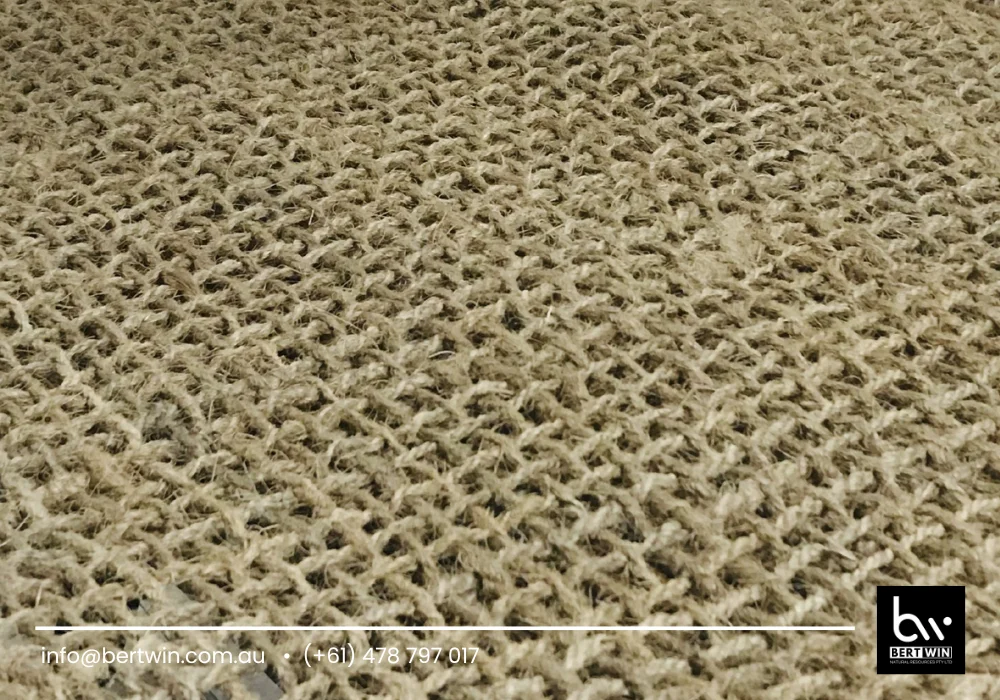The type of coco mesh is an essential consideration for a variety of industries in Australia. Coco mesh is a sustainable and eco-friendly material derived from the fibers of coconut husks. This natural product is used for multiple applications, from erosion control to gardening and landscaping. In this article, we will explore the different types of coco mesh available, their unique properties, and how they can benefit various industries and projects in Australia.

What is Coco Mesh?
Coco mesh is made from the fibers of coconut husks, a renewable resource that has been used for centuries in various cultures. The fibers are spun into a mesh structure, which can be used for a wide range of purposes. The type of coco mesh chosen depends on the specific requirements of the project, such as the desired durability, biodegradability, and the environmental conditions it will face.
The type of coco mesh can vary in terms of thickness, density, and the weaving technique used. Some types are designed for short-term use, while others are made to last longer in harsher conditions. The versatility of coco mesh makes it a go-to solution for many environmental and agricultural applications, especially in Australia’s diverse climates.
Different Types of Coco Mesh
1. Erosion Control Coco Mesh
One of the most common types of coco mesh is used for erosion control. This type is designed to stabilize soil, preventing it from being washed away by heavy rain or wind. In Australia, erosion is a significant concern, particularly in coastal regions, riverbanks, and agricultural areas. The erosion control coco mesh is made from tightly woven coconut fibers, which help to anchor the soil and allow vegetation to establish itself.
This type of coco mesh is typically biodegradable, meaning it will naturally break down over time. This is an advantage in environmental restoration projects, where it is essential that materials do not persist in the ecosystem long after their use. The biodegradable nature ensures that as plants grow and take root, the mesh will decompose, leaving the soil stabilized without leaving behind harmful waste.
2. Coco Mesh for Landscaping and Gardening
The type of coco mesh used in landscaping and gardening is often lighter and more flexible than the mesh used for erosion control. It is commonly used to line garden beds, help with vertical gardening, or support climbing plants and vines. In Australia, where urban gardening and sustainable landscaping are gaining popularity, this type of coco mesh is widely used in both residential and commercial applications.
This type of mesh helps in water retention, providing moisture to the plants during dry conditions. Additionally, it prevents soil from washing away during rainstorms. As an environmentally friendly alternative to plastic-based materials, it contributes to sustainable gardening practices. The flexible nature of the coco mesh allows it to be shaped and adjusted to fit various garden designs.

3. Reforestation Coco Mesh
Reforestation projects in Australia often use a type of coco mesh specifically designed to protect newly planted saplings. This type of mesh is used as a protective cover over newly planted areas to prevent soil erosion while allowing vegetation to grow. The coco mesh also helps retain moisture in the soil, which is critical in areas where water conservation is important.
In reforestation efforts, the coco mesh is used in combination with other erosion control materials to create a stable environment for young trees to grow. This type of mesh is often biodegradable and provides temporary protection for the first few months or even up to a year, depending on weather conditions. As the saplings grow and establish deeper root systems, the mesh breaks down naturally, leaving a healthy and flourishing environment for the plants.
4. Coco Mesh Mats for Wildlife Habitat Creation
Another type of coco mesh is used to create artificial wildlife habitats in areas where natural vegetation has been destroyed or is insufficient. These coco mesh mats are designed to be placed over bare soil, providing a base for vegetation and wildlife-friendly plants to grow. They can be used in areas such as wildlife corridors or along roadsides to restore natural habitats for animals and insects.
This type of coco mesh is typically used in conjunction with a range of native plant species that are selected for their ability to thrive in the local ecosystem. As the plants grow, the coco mesh helps to provide them with the support they need to establish themselves, while also protecting the soil beneath.
Benefits of the Different Types of Coco Mesh
- Eco-Friendly: Coco mesh is made from natural coconut fibers, making it an environmentally sustainable material. Unlike plastic-based products, coco mesh decomposes over time without leaving behind harmful residues.
- Durability: The different types of coco mesh are designed to withstand various environmental conditions. While erosion control coco mesh is made to last longer in harsher weather, lighter versions used for gardening and landscaping are designed to degrade over time.
- Versatility: The type of coco mesh used can be tailored to suit a wide range of projects, from protecting soil and plants to creating wildlife habitats and supporting reforestation efforts.
- Cost-Effective: As a natural and renewable material, coco mesh is often more affordable than synthetic alternatives. It also provides long-term benefits by supporting plant growth, improving soil quality, and preventing erosion.

Conclusion
The type of coco mesh used in Australia varies depending on the specific needs of the project. Whether for erosion control, landscaping, reforestation, or wildlife habitat creation, there is a type of coco mesh suited for every application. Its sustainability, durability, and versatility make it a valuable resource for a wide range of industries, particularly in a country like Australia, which faces diverse environmental challenges. By choosing the right type of coco mesh, projects can contribute to both environmental conservation and sustainable development.
For further information, you may contact WhatsApp at (+61) 478797017 or via email at info@bertwin.com.au.
